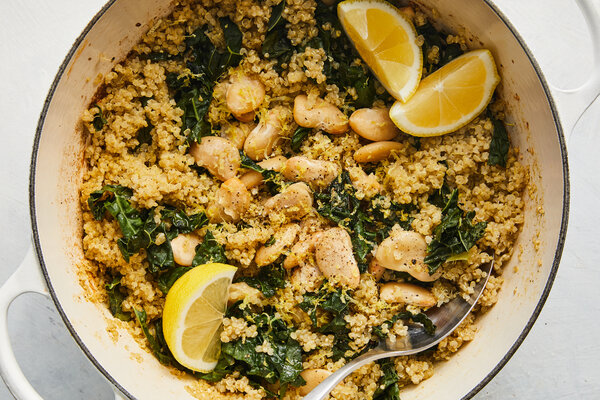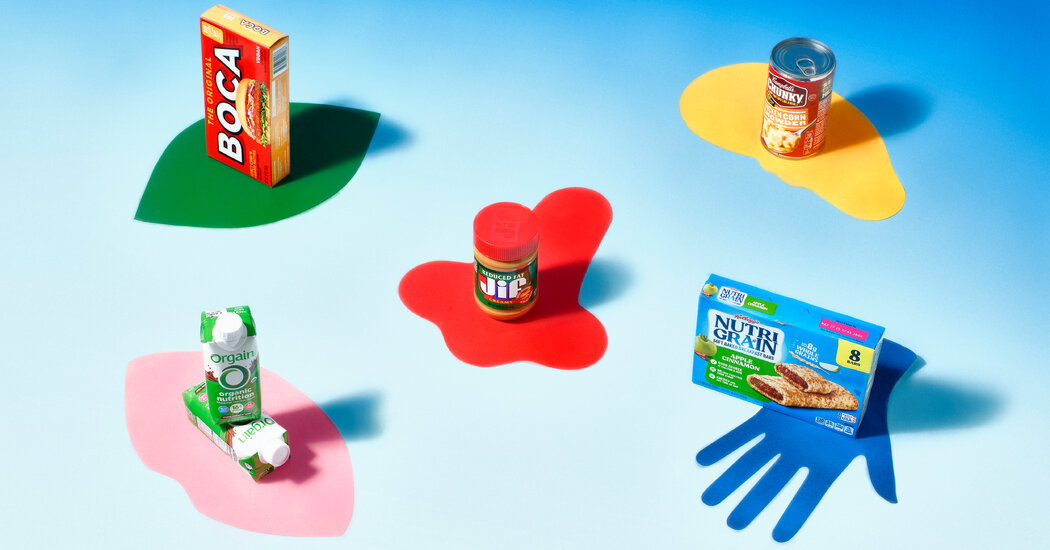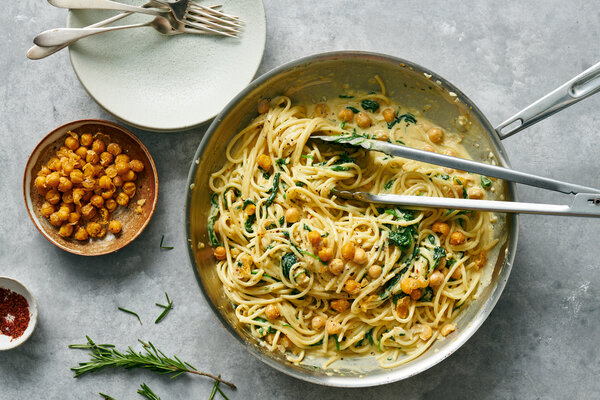This technique for cooking grains, vegetables and proteins all at once will make plant-based cooking part of your routine.
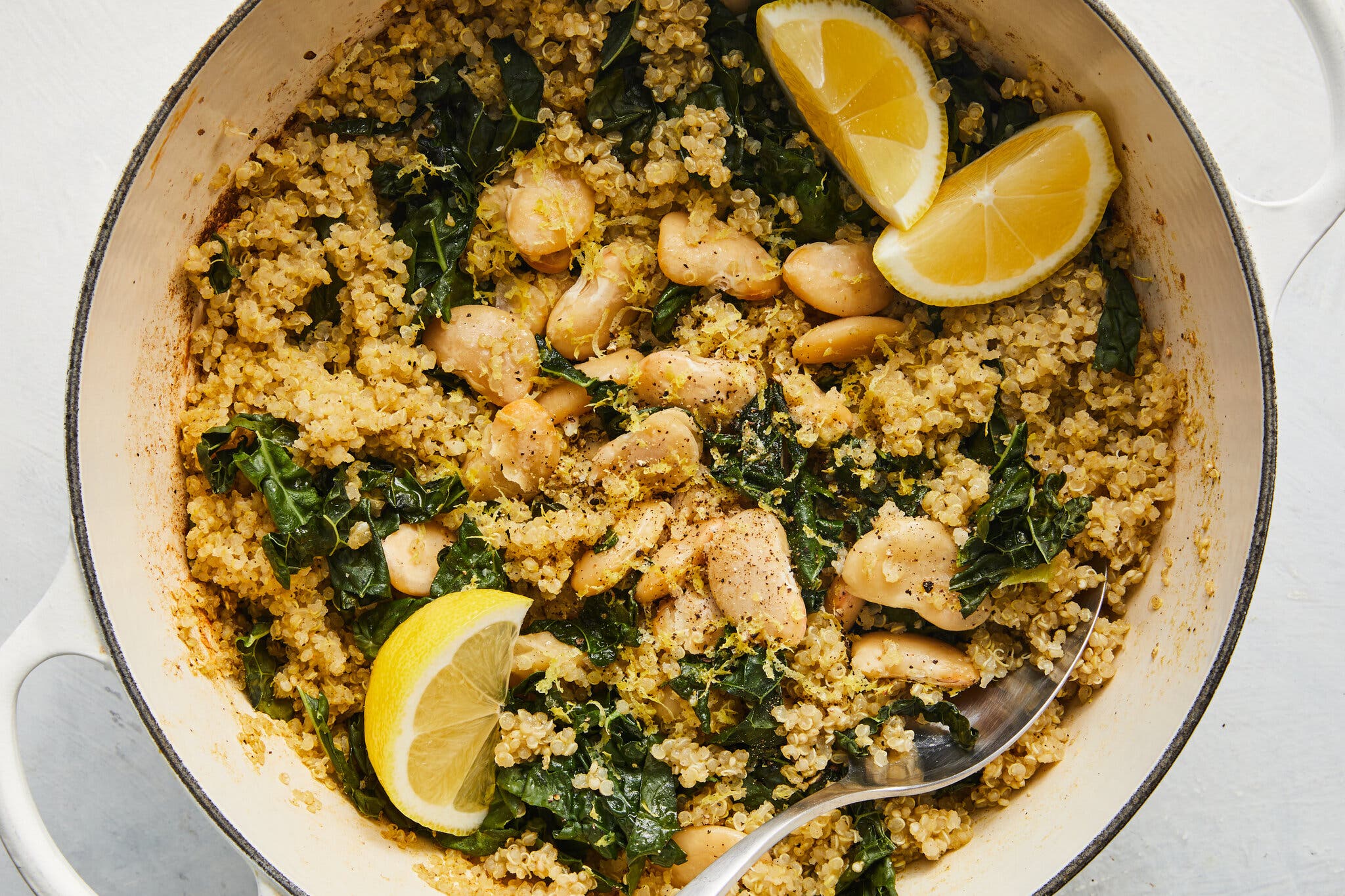
A squeeze of lemon juice adds freshness to any hearty blend of grains, beans and greens.Linda Xiao for The New York Times. Food Stylist: Judy Kim.
Vegetables, beans and grains stocked in your kitchen are much like Woody, Slinky Dog and the other well-loved toys in the movie Toy Story. They may not be as flashy as Buzz Lightyear, the new plaything in the house, but these old-fashioned characters reliably work together to make their human happy. (That’s you.) Greens, beans and grains do the same thing in this one-pot technique by cooking together to create vibrant, sustaining vegetarian meals.
The combination of snappy vegetables, creamy proteins and fluffy grains is not only delicious, but affordable and healthful. “Whole grains, greens and beans are some of the most nutrient-dense foods on the planet,” writes Gena Hamshaw, a certified nutritionist, in her forthcoming book “A Grain, a Green, a Bean” (Ten Speed Press, 2025). “And when these foods are combined, they become even more powerfully nourishing.”
This streamlined and adaptable technique makes it easy for a cook to get into a groove of preparing homemade meals. Beneath the lid of a covered pot, grains simmer and the steam swirling from them slacken vegetables just until they’re vividly green, while already-cooked beans and their seasonings wake up from the residual warmth.
To start, pick any grains you like. For a mix of textures, use multiple grains that cook for the same amount of time. Long-grain white rice and quinoa, a seed that acts like a grain, are the fastest combination; sorghum and wild rice take longer but offer great nuttiness and chew. You can cram more flavor into the grains by adding ground spices or chopped aromatics to the cooking liquid, which can be stock or coconut milk instead of water.
When the grains are nearly ready, layer bite-size pieces of green vegetables on top and cover again. The steam’s gentle heat will soften the vegetables while maintaining their natural sweetness. Asparagus, green beans, frozen peas and other spring vegetables should go in during the last three to five minutes of the grains cooking, dark leafy greens should be added in the last five to seven and broccoli florets in the last 10 to 15.
As for the protein, choose any cooked legumes, including beans, lentils and soybean-based options like tofu, tempeh and edamame. Before you scatter them into the pot, coat them with a little fat. A sauce like peanut sauce or Jamaican jerk seasoning paste, or even a drizzle of olive oil with garlic provides personality and sheen.
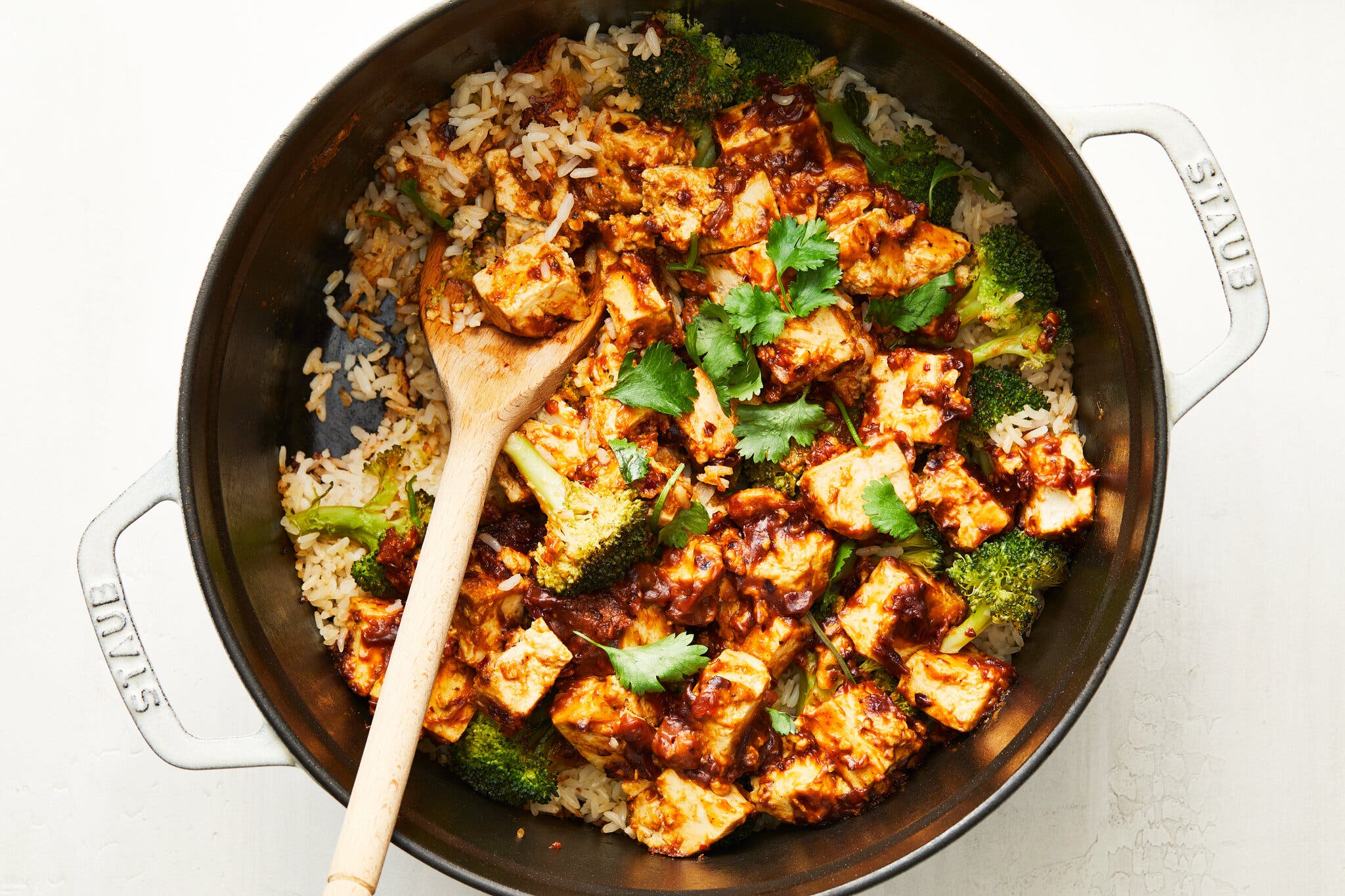
Tofu is another great protein option for this cooking method.Armando Rafael for The New York Times. Food Stylist: Cyd Raftus McDowell.
You can eat this grain bowl hot, warm or cold, on its own or brightened with just a squeeze of lemon. You also can garnish it wildly with crunchy toasted nuts or seeds, cooling yogurt or another sauce, fresh soft herbs or briny olives or pickled peppers.
It’s easy to repeat this pot of beans, greens and grains without tiring of the dish because of its flexibility. After all, the combination has sustained the globe in classics like Hoppin’ John and collard greens, chickpea saag with roti or rice, Persian greens, bean and noodle soup, tofu fried rice, green rice and beans, minestrone and Spanish chickpeas with spinach and breadcrumbs.
We’ve got a friend in the trio of greens, beans and grains. Even when they appear asleep on the shelf, they can surprise us: Switching up your routine can be as simple as cooking dusty staples in a new way, and this one-pot technique does just that.
Follow New York Times Cooking on Instagram, Facebook, YouTube, TikTok and Pinterest. Get regular updates from New York Times Cooking, with recipe suggestions, cooking tips and shopping advice.



